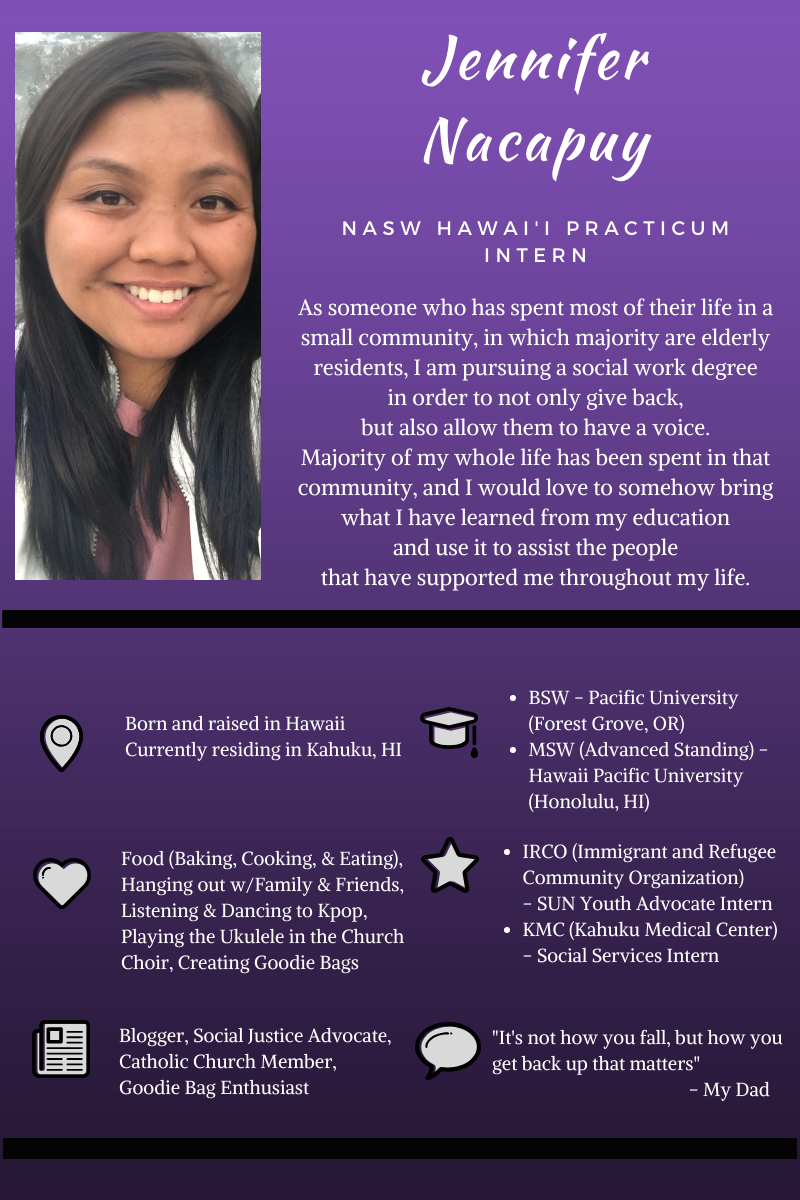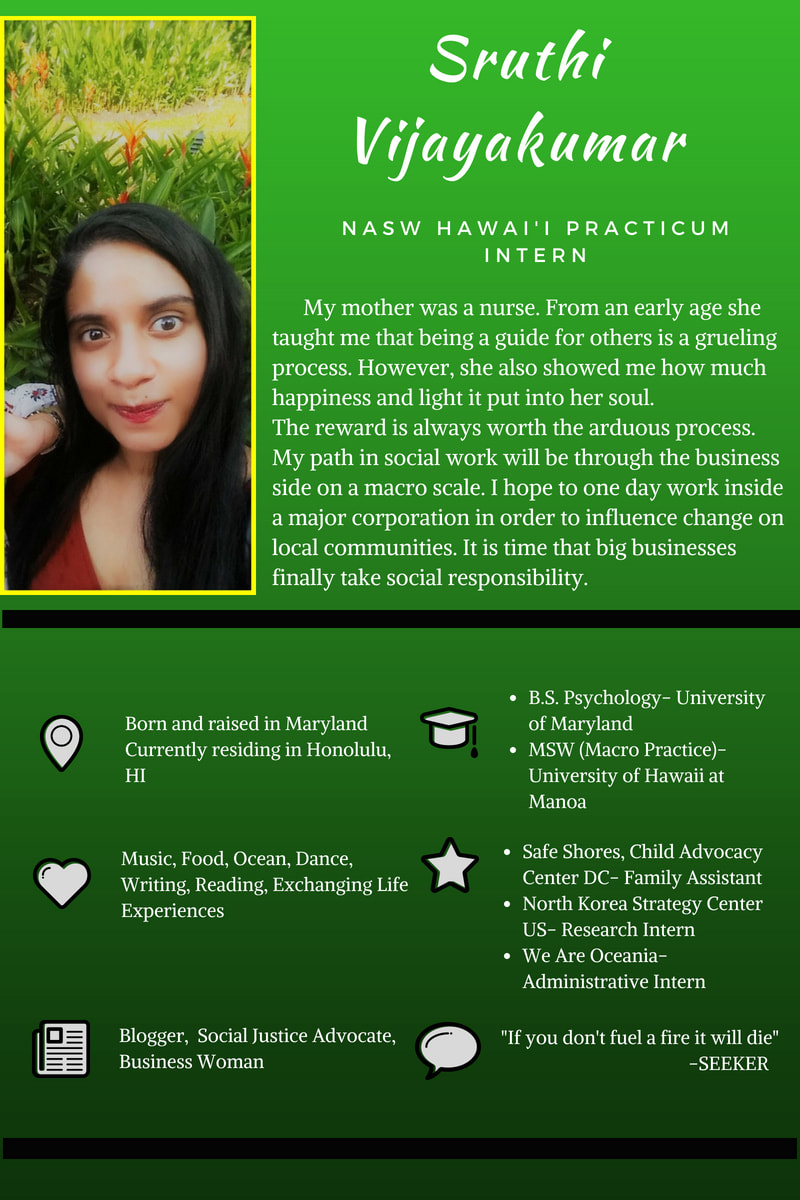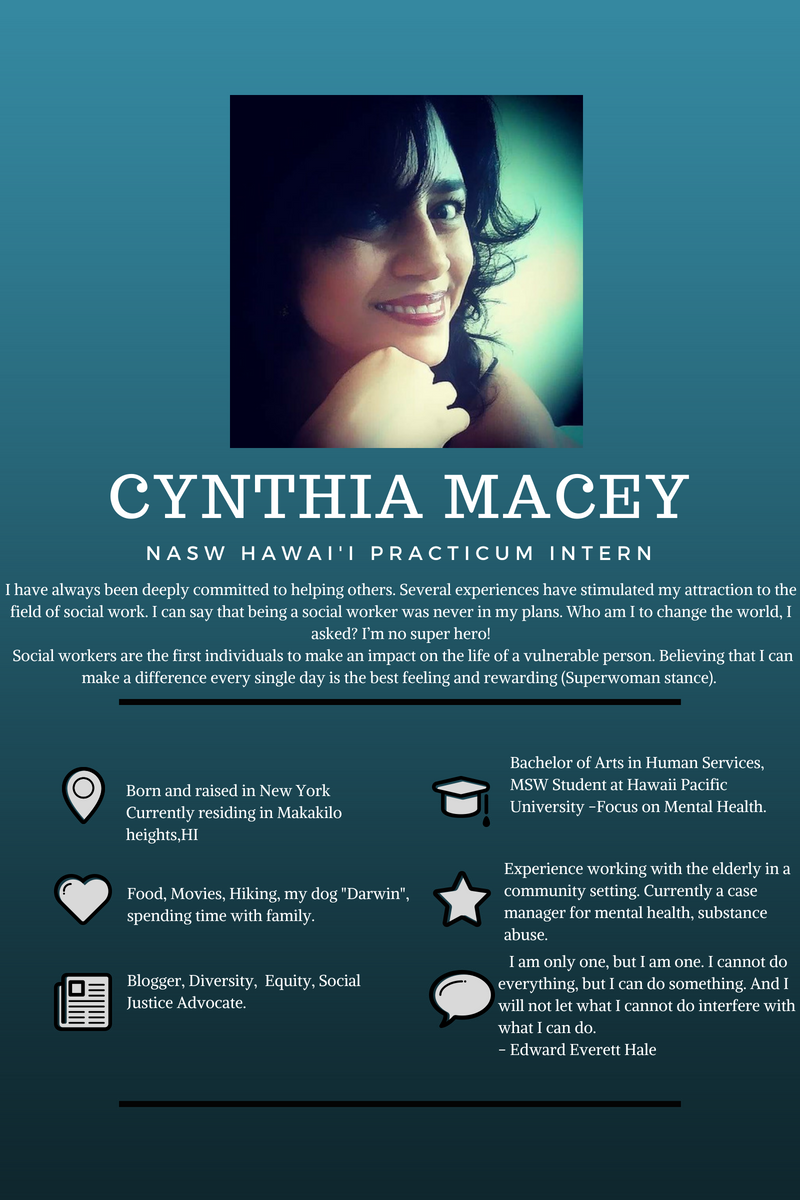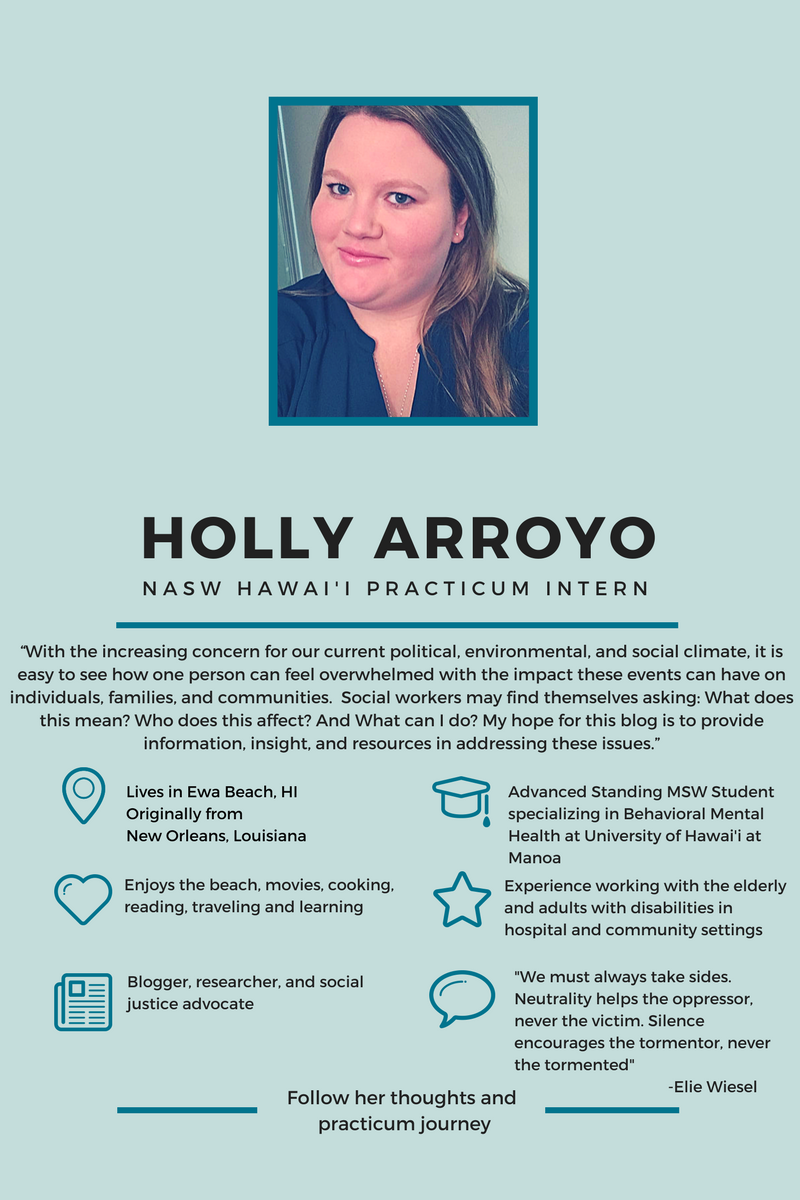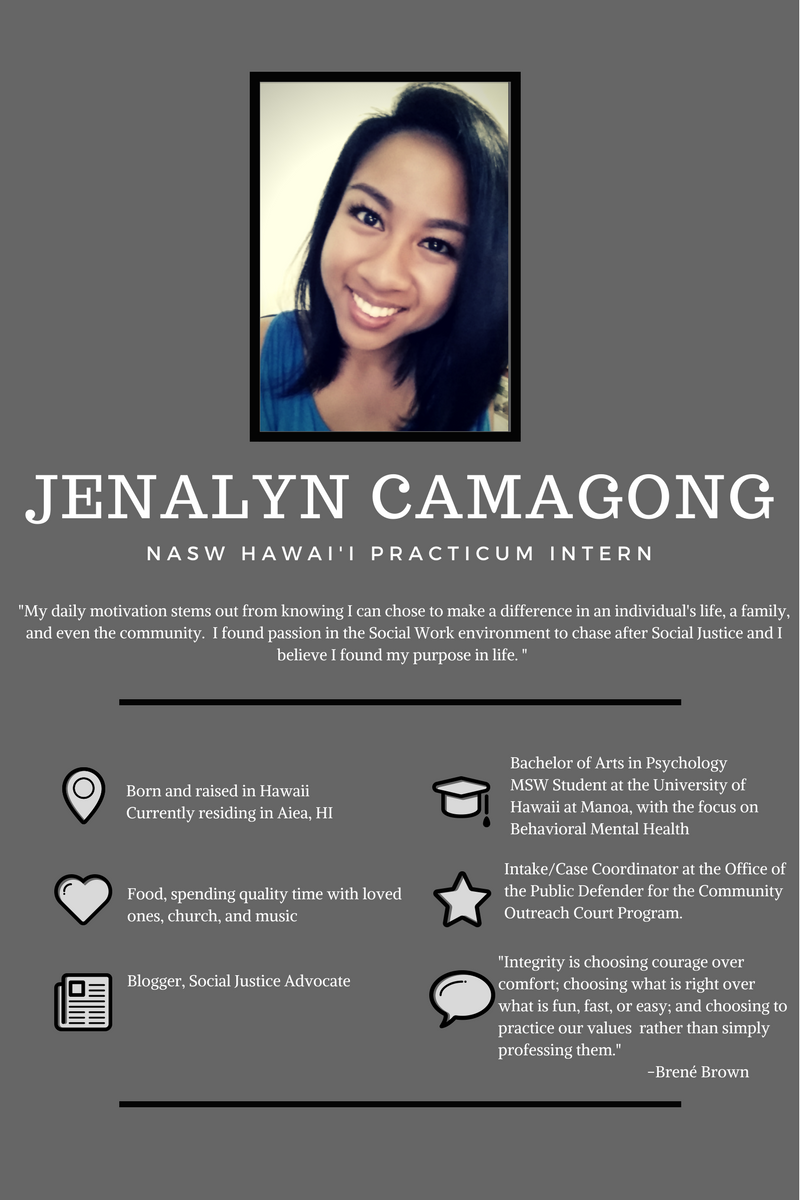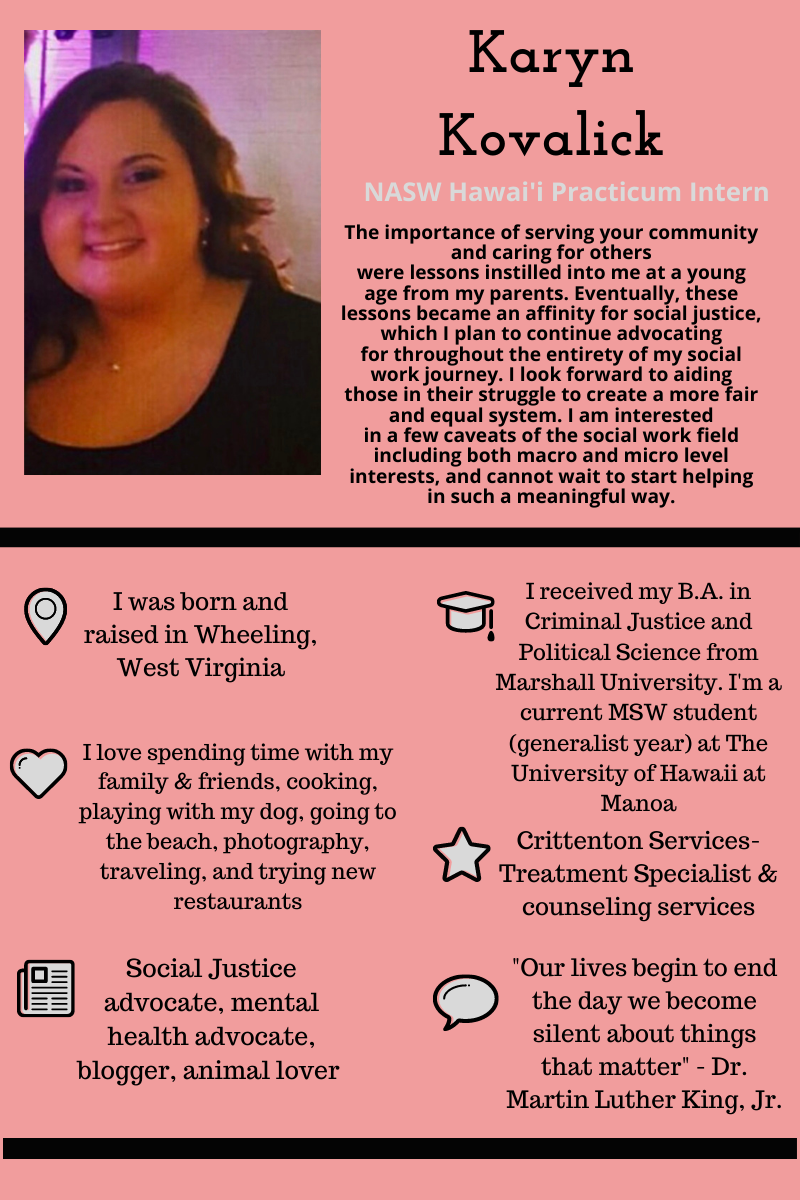|
By Holly Arroyo
Every student at some point in their education has heard a teacher or parent say, “you know, this won’t be so easy when you get to [insert education level here]”. High school to undergrad was probably the biggest adjustment for me as a student. In 2008, I graduated from a small Catholic high school in southeast Louisiana. I was accustomed to smaller classroom sizes, extensive parental involvement, and close relationships between my classmates and teachers. There were about 120 students in my graduating class. So, imagine my shock when I attended my first semester of college at Louisiana State University, where there were over 30,000 students enrolled. It was then I decided I needed a break from school and chose to work a full time job as a pharmacy technician for 4 years. When I decided to go back to school, it was at a university half the size of LSU and it was there that I discovered social work. So, I had a plan. A plan I was passionate about. Social work had everything I valued in a career: opportunity to make a difference in the world, flexibility, autonomy, and security. Whether I would feel the same way once I started working in the field was something I wouldn’t know until later. First, I had to finish school. My time as an undergrad was filled with memories and experiences that I will treasure for the rest of my life. However, very few of those treasured memories were from any of my courses, including my social work courses. The invaluable lessons I learned were from jobs and internships. I was a resident assistant for 3 years, I worked in a group home with adults with disabilities, and I interned in the emergency department of a local hospital for my practicum in my Senior year. The reason I learned more in these settings than I did in my undergrad coursework was because I could take the theories, frameworks, and concepts discussed in the classroom and apply them to a real-world setting. Suddenly, it was all relevant. Well, at least some of it. One of the most frustrating things about undergraduate coursework is the never-ending list of prerequisite courses needed to obtain a degree. Now there are some courses that may not have been social work related, but they were courses that taught skills used across multiple disciplines. Understanding writing, science, math, history, and economics can be useful but it can also be tedious. Personally, I doubt that I will need to use any of the information taught in my earth science class in social work but crazier things have happened. So why am I ranting about my undergraduate education in my graduate blog? Well, ultimately it's because I simply do not feel the same way I did about my undergraduate experience as I do towards my graduate experience. Granted, it's only week 3 and a lot can happen between now and when I graduate in May 2018. But I find myself fascinated with the class discussions, readings, homework, and even the dreaded research papers. One explanation for this could be that I am genuinely interested in the primary focus of each of my social work courses which include research, mental health, healthcare, and law. I can see myself working in any of these specializations and that feeling has made my graduate experience enjoyable and exciting. I’m reminded of the saying “do what you love and you’ll never work a day in your life” and I think that is mostly true but that doesn’t mean it will always be easy. The challenge is what makes the reward worth it. And grad school is a huge challenge. As this semester progresses, I’m sure I’ll want to pull my hair out from lack of sleep, eat my feelings, and reject anything remotely close to a social life. In each of my classes, the topic of self-care is discussed daily. What self-care looks like will be different for each person but the goal is the same: keeping yourself healthy and sane to achieve your goals and hopefully avoid burnout. And what better setting to practice this invaluable social work skill than in grad school where every is riding the struggle bus together. My hope for this blog is to be a source of self-care not only for myself but for others. Expressing opinions, discussing current events, staying informed, and being as proactive as possible are just a few ways I keep myself sane. And isn’t that what self-care is? Keeping yourself sane as much as possible. I look forward to sharing my learning experiences during my graduate education as well as hearing from others who are going through similar educational, professional or personal journeys.
0 Comments
Leave a Reply. |
Author2020 Spring Semester blog posts are written by Jennifer Nacapuy. 2018-2019 Academic Year blog posts are written by Sruthi Vijayakumar & Cynthia Macey. 2017-2018 blog posts were written by Holly Arroyo & Jenalyn Camagong CATEGORIES
All
ARCHIVES
September 2020
|

